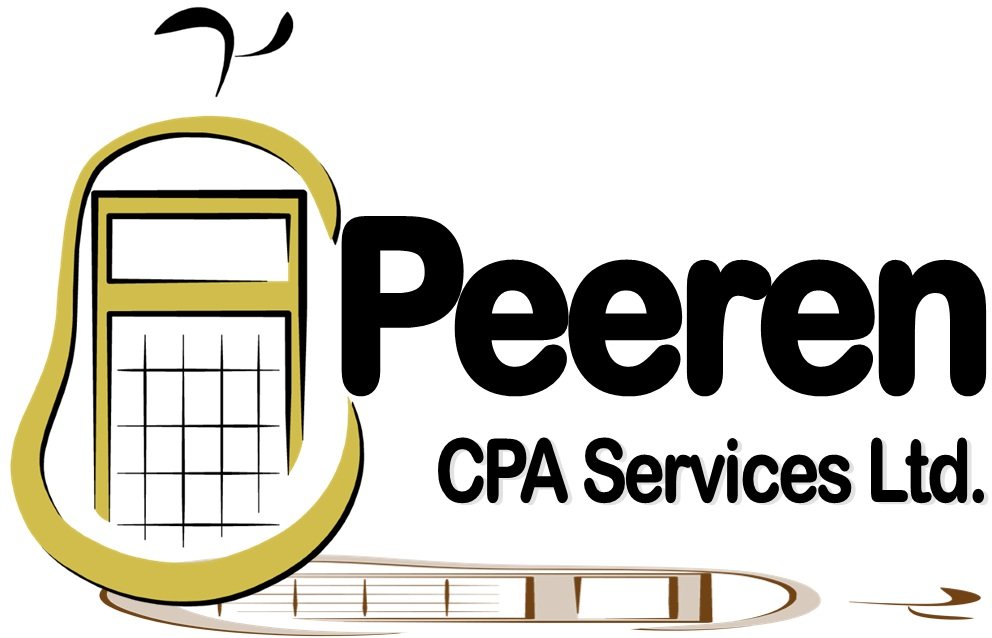Incorporation: Smart Move or Unnecessary Step?
Small Business Week is a time to celebrate entrepreneurs and the communities they help build. One of the most common questions small business owners face is whether to incorporate or remain a sole proprietor. In this post, Chaelene Peeren, CPA, explains what incorporation really means for your taxes, legal liability, and long-term growth—helping you make an informed choice that fits your business goals.
I was looking at my schedule and noted this week is Small Business week! For my entire career, I have worked alongside small businesses. It has been my pleasure to provide advice, services, and a listening ear to owners of these businesses. Small businesses are unique. They define the communities that they serve and generally want to support other small businesses to help the local economy thrive. Moving into this space from the larger corporate firms has been one of the most eye-opening moments in my career. Entrepreneurship is not for the faint of heart, but it is so rewarding when done right.
So what was the first question I asked myself when ! made the decision to move into my own business? Its more basic than you might think: “Is it better to operate as a corporation or sole proprietor?”. I get asked this question a lot, and quite often it is prompted by a client that saw a reel on social media, a post about minimizing taxation totals, offshore investing, and more. These “strategies” as they are presented often are puff pieces that are never grounded in the reality that a typical business owner experiences. They may not even be for Canadians at all, but unspecified “advice” from influencers. So what should you trust? Professionals. Local CPAs that know your business, service area, the tax act, legislation changes, and general practices for similar industries and operations. People who will get to know you and your business, and give you tailored advice.
So, I wanted to share a few of the most basic questions that you should ask yourself on the legal status of the business you are either planning or running.
What does your business provide?
Service businesses depend on the type of service provided and level of personal responsibility that is held by the business if something were to go wrong. For example, any professional service (medical, financial, personal care, etc.) will inherently carry a significant risk to the business’ practitioners if a service result is not as promised. Think about a medical doctor, for example; these individuals often incorporate to gain a small measure of separation from their personal legal entity by giving their business a legal entity of its own.
Non-service businesses such as shops, online retailers, etc. have a much lower level of personal responsibility if their products are not as shown. There is still personal risk, but not to the degree of a service business.
Will you need to obtain significant financing to start or continue operations for the business?
If yes, it could be in your best interest to incorporate so that you again have a bit of a degree of separation from the legal entity that owns the debt and your personal finances. This may not be possible for a new business, but it is certainly an option if your business has sufficient history and creditworthiness to qualify without you signing on as guarantor.
If you need to use your personal credit to qualify for the required loans then this advantage is limited. If you are the sole shareholder and director of a company you are inherently the one responsible for the debt because legally no one else controls the corporation and its operations.
Who all is involved in the business?
If you are solo operating a business and have no other partners then it likely is not necessary to go incorporate a company. You are able to employ staff directly just like a corporation can, and you can operate as normal with full control of the business.
If you are either in partnership with a non-spouse (whether a family member or not) or planning to open the business up for investors to buy in, incorporation might be a better idea. This is because the process of incorporation legally binds all involved parties to the articles of incorporation once shares of any class are issued. There is also a requirement to create and maintain a shareholder’s agreement. It gives all parties the opportunity to hold other parties accountable for their share of the business operations and results.
What assets or investments are at risk with the regular business operations?
If you have bought significant assets personally that you do not use for the business (or have personal assets that are significant in value and used in the business) what do you stand to lose if the business were to fail? This is a crucial consideration. If you are a sole proprietor then almost all that you own is fair game for seizure and sale in the event of tax default. There is no limitation of liability. If you are incorporated and the business is self sufficient without you as a guarantor, then there is a degree of protection for your personal assets (for example, your home is not owned by the company so cannot be seized).
A key thing to note is that in general shareholders will still be held responsible for the total value of the company’s defaults if the assets held by the business are insufficient to settle the business obligations; especially if there is only one shareholder and director.
How do you like to receive your renumeration?
Sole proprietorships are simple. Track your income and expenses, maybe a few assets, and claim the bottom line value as your active business income for the year on your personal tax return. Yes there are more nuances than this, but its a basic process most people can follow. No need for anything complicated, and you pay Canada Pension Plan (CPP) deductions on your net earnings which helps qualify you for those benefits in the future.
A corporation has much more complexity. You need to decide o:
Not taking an income, reporting all earnings through the company: This can be beneficial at times, but you lose the ability to contribute to your Registered Retirement Savings Plan or CPP accounts.
Taking dividend income but reporting earnings in the company: This method allows you to avoid paying CPP deductions but exempts you from RRSP contribution room entirely. Any income you earn will be entirely considered investment income. While it may look like you are saving a significant amount of cash flow initially, this may not always be true long term if you lose the future cash flow personally from CPP or RRSP accounts. However, this is a great method for older individuals that do not need to contribute to RRSP or CPP accounts.
Taking a wage or management bonus: This method allows you to contribute to the CPP and RRSP accounts, which is huge for younger entrepreneurs. While you also must remit employer amounts of CPP and the required tax withholdings to the Canada Revenue Agency, this allows you to report an active income personally and can be useful for securing personal financing such as mortgages.
Ultimately, there are a lot of reasons that you DO NOT need to incorporate. Choosing to incorporate also means incurring additional annual fees due to the taxation requirements of filing a T2 Corporation Income Tax Return and the legal filing requirements that need to be met annually. That’s before considering that incorporation can cost anywhere between $500 and $5,000 or more.
As always, if you find yourself pondering this crucial question as a business owner, please reach out. I would be happy to assist. It is so important to fully understand your options before you make that final decision.


